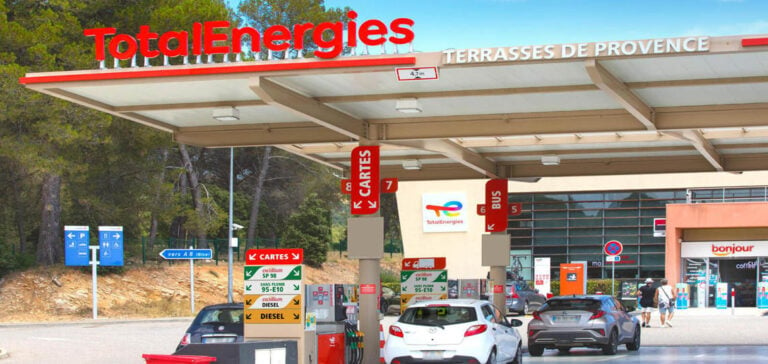TotalEnergies maintains its fuel price cap for 2024, a crucial decision against a backdrop of economic and geopolitical challenges. While oil prices remain volatile due to the situation in the Middle East, the hydrocarbon giant is committed to maintaining a capped price of 1.99 euros per liter for all fuels at its stations.
The origins of measurement
This decision was preceded by debates on the taxation of refineries, including TotalEnergies, in the draft 2024 budget under discussion in the National Assembly. TotalEnergies CEO Patrick Pouyanné had raised the possibility of ending the cap if the tax were introduced. However, the government ultimately rejected this proposal, thus preserving the tariff cap.
A Strategic Choice
Patrick Pouyanné explained the motivation behind this decision in the following terms: “Why did we decide this? We decided because, frankly, at some point, we also need to reconcile our company with public opinion.” This is in response to growing public concern about high fuel prices.
Impact on pump prices
Despite tensions on the oil market due to the war triggered by the Hamas assault on southern Israel, prices at the pump in France continue to fall. At present, prices are even below the ceiling set by TotalEnergies. Around 2,000 of TotalEnergies’ 3,400 stations in France offer capped fuels, mainly in the Excellium range.
Future prospects
The evolution of oil and fuel prices will largely depend on the situation in the Middle East. Bruno Le Maire, the French Minister of the Economy and Finance, has stressed that if the crisis remains local, the consequences will be limited. However, an extension of the conflict would have more serious repercussions on energy prices.
Oil markets continue to pay close attention to developments in the Middle East, with concerns that the conflict may spread to neighboring countries.
The Economic Context
This decision to maintain capped prices comes against a complex economic backdrop. The volatility of oil prices is partly due to the tense geopolitical situation in the Middle East. Uncertainties surrounding the war between Israel and Hamas have created turmoil on world oil markets.
French consumers have seen pump prices fall in recent weeks, but future stability remains uncertain. Global oil demand, geopolitical tensions and government decisions will play a key role in setting fuel prices.
TotalEnergies has made a strategic decision to maintain its fuel price cap for 2024. This measure is designed to address public concerns and maintain price stability, despite economic and geopolitical challenges. The future of fuel prices will depend on many factors, including developments in the Middle East and global demand for oil.
Final Analysis
TotalEnergies maintains its commitment to the public by maintaining capped prices. This decision has a significant impact on the economy and consumers. The company is thus demonstrating its ability to adapt to the realities of the global oil market, while responding to public concerns.






















